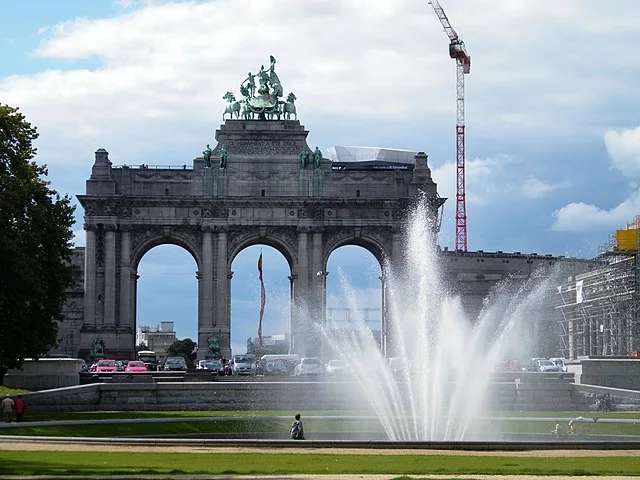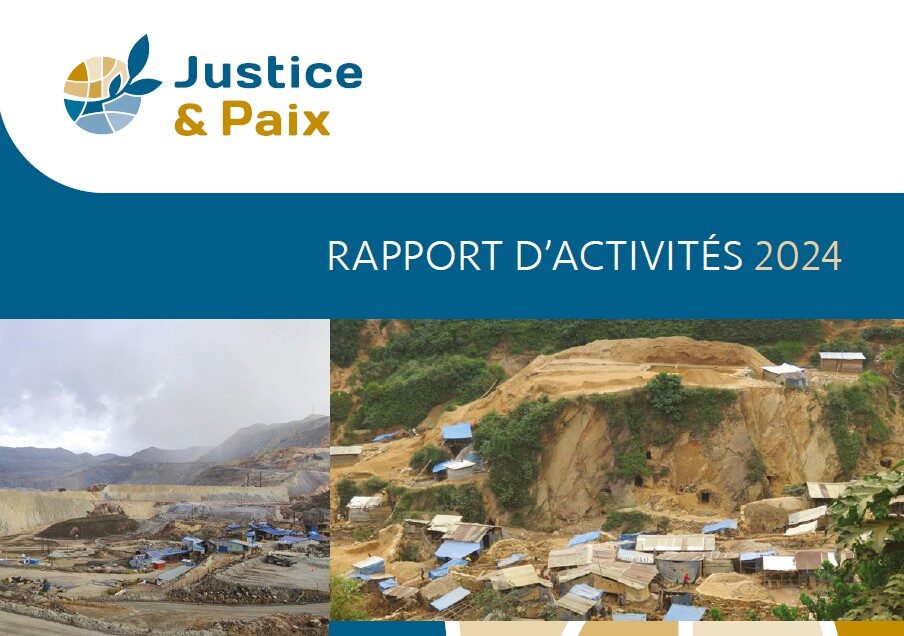Often still, the distinction between independence and decolonization is not understood. Although they are related, one is more or less complete while the other still requires a lot of effort. On the occasion of Congolese independence day, this analysis makes this distinction.

Reference: Cinquantenaire, Arch Brussels, Belgium – Sarah Stierch, Creative Commons Attribution 4.0
Let's dive into the context: it's January 1960 in Brussels. After a significant mobilization of the Congolese people in favor of independence, political negotiations, known as “Round Tables” in Brussels, were organized between the Belgian authorities made up of parliamentarians from the three traditional Belgian political parties (Christians, liberals and socialists) and a Congolese representation composed in particular of leaders of political parties and fairly influential customary chiefs. At that time, the terms of independence are set. The date of independence chosen was June 30, 1960. This date still resonates today as a day of total liberation of the Congolese people. Certainly, the Congolese people had just acquired their independence, but did this amount to a total break with the colonial system that was imposed on them for decades?
Far too often, in the Belgian public debate, the moment of political independence of the Democratic Republic of Congo is understood as a complete rupture between the Belgian metropolis and the Congolese colony. However, doctors and professors Sarah Van Beurden & Gillian Mathys highlighted in the report of the Commission's experts on the colonial past[1] that " tandis que l’indépendance renvoie au moment de la transition politique ou judiciaire de la colonie à un État autonome et souverain, le concept de la “décolonisation” couvre un éventail bien plus large de significations. Les historiens l’utilisent pour désigner les processus plus larges qui ont accompagné (théoriquement) l’indépendance politique »[2]. In other words, Congolese independence was effectively the end of the political and judicial authority of the Belgian metropolis on Congolese territory. However, colonial relations did not end with this!
Indeed, " colonization is not the work of isolated individuals: it is a system that operates, and that is what must be understood »[3], said Congolese historian Elikia Mbokolo. Understanding this means not limiting one's approach to the colonial system and its consequences to the colonial period in the strict sense. Van Beurden and Mathys noted this: “ It is only by adopting such a longer time frame that it is possible to undertake an honest attempt to understand and acknowledge the impact of Belgian colonization »[4]. They therefore define decolonization as the process which “ consists more broadly of untying the links [or the nodes] between the former colonizer and the colony and to establish the sovereignty of former colonies »[5]. This type of process therefore began well before independence and continued after it. Furthermore, we understand that decolonization takes place at many levels, whether economic, political, cultural, social, ideological, international relations, etc.
However, it is also important to emphasize that the term “decolonization” is so rich that it is difficult to confine it to a single interpretation. For example, we can cite “[…] African interpretations of decolonization as a project of national self-determination which was at the same time a revolutionary project of creating an anti-racist and egalitarian world as opposed to an imperialist world »[6]. Ultimately, all of these interpretations form a fairly disparate theoretical corpus, but having common foundations that we can call decolonial thought. In general, decolonial thought seeks to elucidate the philosophical, psychological, economic, sociocultural and political consequences of colonization. For decolonial thinkers, colonization has affected societies around the world so profoundly that it is impossible to say that it was put an end to through the independence of former colonized countries. . On the contrary, decolonial thinkers demonstrate that the colonial relationship continues to order contemporary cultural and economic hierarchies.
Decolonial thought comes from the poststructuralist movement which is particularly interested in language, discourse, or more precisely how discourse influences and informs practices and reality. This thinking is based on the work of leading authors such as Frantz Fanon, who was a true emblem of the anti-colonial struggle through his involvement in the Algerian War alongside the National Liberation Front. He actively participated in the end of colonial empires through his revolutionary thought which inspired numerous struggles, from the Black Panthers to the Palestinians, including anti-apartheid activists. We also think of Angela Davis who is, through her commitment and her written contributions, still today a figure of black feminism, that is to say a feminism which considers the fight against sexism, racism and inequalities of social classes as consubstantial. Decolonial thinkers emphasize the discourses, ideologies and knowledge that accompanied and shaped the colonization processes as well as the historical processes that followed the colonization process. They reject the idea that there is a distinction between colonization as a system of exploitation and imposition by force and colonization as a system of knowledge and representations. The authors and decolonial activists demonstrate how cultural, economic, political, epistemological processes, etc. work together to perpetuate colonial relations, to reconstruct and reconfigure them in other forms.
Following this development, we directly understand the interest in distinguishing Congolese independence from decolonization. Considering the two terms as synonyms creates confusion for citizens. Some people may not understand the benefit of decolonizing our society today; However, this process is essential to social cohesion and living together. After all, decolonizing is nothing other than questioning our mutual relationships, in all areas, all sectors, and thus exposing the injustices and inequalities perpetuated for years against populations. formerly colonized in order to put an end to it. In this 63e year of Congolese Independence Day, the Justice & Peace Commission wanted to highlight this distinction between independence and decolonization in order to encourage citizens to continue the individual, collective and societal work of decolonization. We encourage you to inform yourself, to read on the subject, to support civil society organizations and activists and above all to dare to question colonial power relations; relationships with which we have certainly all grown up, but which are fundamentally unbalanced and maintain representations which lock certain human beings and members of our society into a position of subordinate otherness.
Emmanuel Tshimanga.
[1] Special Commission Responsible for Examining the Independent State of the Congo and the Colonial Past of Belgium in the Congo, Rwanda and Burundi, Its Consequences and the Follow-ups That Should Be Taken: Experts' Report.
[2]Mathys, Gillian, et al. Special Commission Responsible for Examining the Independent State of the Congo and the Colonial Past of Belgium in the Congo, Rwanda and Burundi, Its Consequences and the Follow-ups That Should Be Taken: Experts' Report. Belgian Chamber of Representatives, 2021, p. 345.
[3] Lismond-mertes, Arnaud. “Colonial propaganda”. Together, no. 95, 2017.
[4]Mathys, Gillian, et al. Special Commission Responsible for Examining the Independent State of the Congo and the Colonial Past of Belgium in the Congo, Rwanda and Burundi, Its Consequences and the Follow-ups That Should Be Taken: Experts' Report. Belgian Chamber of Representatives, 2021, p. 349.
[5]Mathys, Gillian, et al. Special Commission Responsible for Examining the Independent State of the Congo and the Colonial Past of Belgium in the Congo, Rwanda and Burundi, Its Consequences and the Follow-ups That Should Be Taken: Experts' Report. House of Representatives of Belgium, 2021, p. 345.
[6] Ibid.





